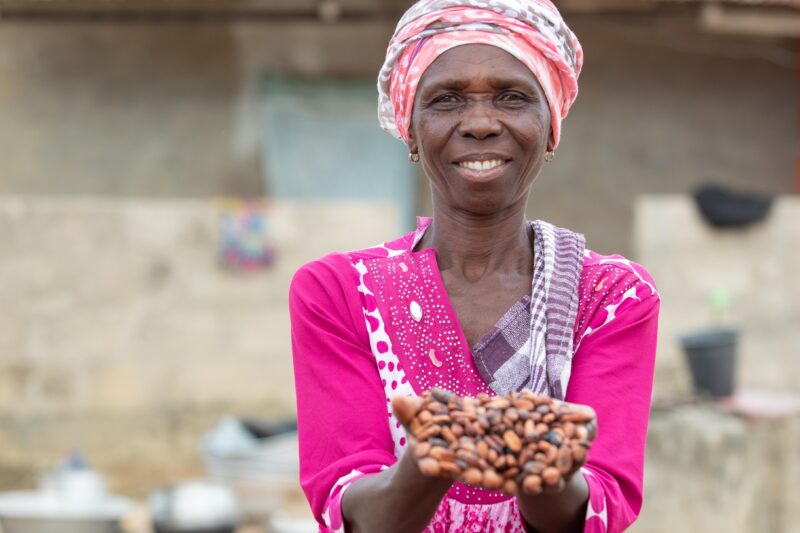50% Cocoa farmer pay rises in Ghana and Ivory Coast could prove decisive for sector

Cargill has worked with key cocoa growing communities in West Africa, and will be joining this year's World Confectionery Conference. Pic: Cargill
These past few months, and even weeks have seen the full glare of the media spotlight upon the global cocoa sector as never before, with mainstream media picking up on its core significance right around the world.
Quite simply put, unless the major situation of cocoa supply shortages and speculative investment from hedge funds and other investors to put crops at a reported nominal record high of $10,000 a tonne, the future of the industry as a viable concern in its core West African market – which still provides two thirds of the market, is in real jeopardy.
Thankfully, for the hardworking cocoa communities in Ghana and Ivory Coast who have found themselves unwittingly at the centre of this global drama, there were two very momentous announcements within the past week. This came with the separate decisions to raise farmer contracts by 50% for the next harvest, which has been widely welcomed by the agricultural community as a genuinely meaningful move that will make a difference to many lives.
There’s no doubting that conditions have been notably tough for many communities after two years of poor harvests, impacted by adverse weather, crop diseases, poor ageing cocoa stock, and lack of access to affordable fertilisers. Then there has also been other major issues including ‘galamsey’ illegal gold mining, in which financially hard-pressed farmers have felt pressured to sell access to their land to speculators.
Moreover, even under the uprated pay deal announced this past week, equating to $2,470 a tonne is still less than a quarter of the prices being fetched on the New York and London Futures commodities markets, with no guarantees as to what will happen if prices eventually slide back by several thousand dollars a tonne after the ramped-up market investment that has been witnessed within the past year, that has seen prices triple from their previous position.
This has of course caused widespread concern across the sector, and the very fact that our own coverage received so many comments from readers has shown that this is a highly emotive issue. We even had contact from commodities market traders who took the line that ‘let’s not look to place blame on investors,’ when in at least some of their eyes, one of the main issues in this ongoing saga has been the polices of governments in Ivory Coast and Ghana of advance selling of crops a year ahead, meaning that farmers in particular missed out on the huge gains of the past year – until now.
But big question remains as to whether the price increases for farmers being put forward this week are simply just one-offs, or are they going to provide the building blocks for much wider systemic change in the mechanics of how cocoa is traded within West Africa? This is what many independent observers and cocoa experts have noted is required in order bring about true stability and equitable cocoa trading, after decades of what have widely been perceived by many observers as increasingly growing levels of inequality within supply chains.
This very topic will be taking centre stage at this month’s World Cocoa Conference at which Confectionery Production will be the exclusive media partner for. So if you’ve any thoughts or questions or views ahead of the event (which takes place in Brussels between 21-24 April) please do drop me a line personally, at [email protected] and we hope to see as many of you as possible there to help shape the future direction of this industry that remains at the heart of the confectionery sector.
Neill Barston, editor, Confectionery Production
- keep in touch at [email protected] or social media @confectionprod or our LinkedIn pages



